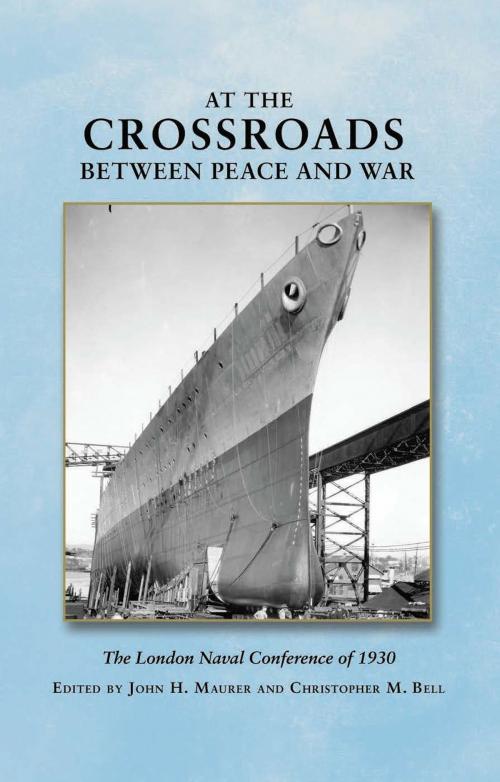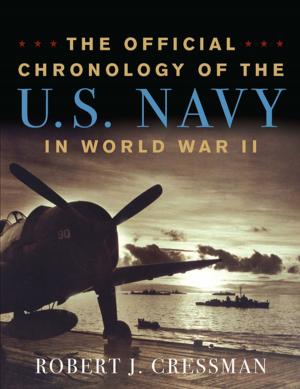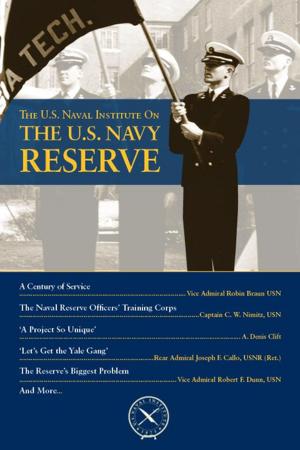At the Crossroads Between Peace and War
The London Naval Conference in 1930
Nonfiction, History, Military, Naval| Author: | ISBN: | 9781612513317 | |
| Publisher: | Naval Institute Press | Publication: | February 15, 2014 |
| Imprint: | Naval Institute Press | Language: | English |
| Author: | |
| ISBN: | 9781612513317 |
| Publisher: | Naval Institute Press |
| Publication: | February 15, 2014 |
| Imprint: | Naval Institute Press |
| Language: | English |
A great power arms race in naval weaponry and platforms, rising challengers seeking to overturn the existing international order in Asia, an economic slump that put immense pressure on politicians in democracies to trim defense budgets, and diplomatic efforts by statesmen to find ways to promote mutual security and avoid rivalries that could lead to war-all these features mark the current-day strategic environment. These features also marked in the era between the two world wars. To prevent the naval rivalries that augured international conflict, statesmen and naval leaders sought to negotiate arms control agreement. Their efforts to avert a great power naval arms race were crowned with achievement at the London Conference of 1930.
What was accomplished at London, of course, did not prove lasting; nor did it lead to additional meaningful arms control and prevent future wars. Instead, London proved a dead end in the evolution of interwar international relations. The London Treaty marked the high point of interwar arms control. When measured against the magnitude of the international catastrophe that would unfold over the next decade, this achievement in arms control now appears practically meaningless at best and dangerous at worst. Critics of interwar arms control argue that, by weakening of American and British naval power, as well as stirring up extremist nationalism in Japanese internal politics, the London agreement represents a case study in political folly that contributed to the awful events leading to the war. The London Conference of 1930 thus represents a watershed, a turning point in the history of the interwar period.
In this volume, leading naval historians tackle the question of how to assess the role played by naval arms control in the history of the interwar period. In addressing this important question, the authors uncover new evidence about the role of intelligence and behind-the-scenes political deal making that adds much to our knowledge of the international and naval history of this important era. This volume’s authors provide the first complete account of the strategic calculations and negotiations that shaped the outcome at the London Conference. No one interested in twentieth-century naval history, international relations and the rivalries of rising and declining great powers, and the origins of the Second World War can afford to miss this important new history.
What was accomplished at London, of course, did not prove lasting; nor did it lead to additional meaningful arms control and prevent future wars. Instead, London proved a dead end in the evolution of interwar international relations. The London Treaty marked the high point of interwar arms control. When measured against the magnitude of the international catastrophe that would unfold over the next decade, this achievement in arms control now appears practically meaningless at best and dangerous at worst. Critics of interwar arms control argue that, by weakening of American and British naval power, as well as stirring up extremist nationalism in Japanese internal politics, the London agreement represents a case study in political folly that contributed to the awful events leading to the war. The London Conference of 1930 thus represents a watershed, a turning point in the history of the interwar period.
In this volume, leading naval historians tackle the question of how to assess the role played by naval arms control in the history of the interwar period. In addressing this important question, the authors uncover new evidence about the role of intelligence and behind-the-scenes political deal making that adds much to our knowledge of the international and naval history of this important era. This volume’s authors provide the first complete account of the strategic calculations and negotiations that shaped the outcome at the London Conference. No one interested in twentieth-century naval history, international relations and the rivalries of rising and declining great powers, and the origins of the Second World War can afford to miss this important new history.
A great power arms race in naval weaponry and platforms, rising challengers seeking to overturn the existing international order in Asia, an economic slump that put immense pressure on politicians in democracies to trim defense budgets, and diplomatic efforts by statesmen to find ways to promote mutual security and avoid rivalries that could lead to war-all these features mark the current-day strategic environment. These features also marked in the era between the two world wars. To prevent the naval rivalries that augured international conflict, statesmen and naval leaders sought to negotiate arms control agreement. Their efforts to avert a great power naval arms race were crowned with achievement at the London Conference of 1930.
What was accomplished at London, of course, did not prove lasting; nor did it lead to additional meaningful arms control and prevent future wars. Instead, London proved a dead end in the evolution of interwar international relations. The London Treaty marked the high point of interwar arms control. When measured against the magnitude of the international catastrophe that would unfold over the next decade, this achievement in arms control now appears practically meaningless at best and dangerous at worst. Critics of interwar arms control argue that, by weakening of American and British naval power, as well as stirring up extremist nationalism in Japanese internal politics, the London agreement represents a case study in political folly that contributed to the awful events leading to the war. The London Conference of 1930 thus represents a watershed, a turning point in the history of the interwar period.
In this volume, leading naval historians tackle the question of how to assess the role played by naval arms control in the history of the interwar period. In addressing this important question, the authors uncover new evidence about the role of intelligence and behind-the-scenes political deal making that adds much to our knowledge of the international and naval history of this important era. This volume’s authors provide the first complete account of the strategic calculations and negotiations that shaped the outcome at the London Conference. No one interested in twentieth-century naval history, international relations and the rivalries of rising and declining great powers, and the origins of the Second World War can afford to miss this important new history.
What was accomplished at London, of course, did not prove lasting; nor did it lead to additional meaningful arms control and prevent future wars. Instead, London proved a dead end in the evolution of interwar international relations. The London Treaty marked the high point of interwar arms control. When measured against the magnitude of the international catastrophe that would unfold over the next decade, this achievement in arms control now appears practically meaningless at best and dangerous at worst. Critics of interwar arms control argue that, by weakening of American and British naval power, as well as stirring up extremist nationalism in Japanese internal politics, the London agreement represents a case study in political folly that contributed to the awful events leading to the war. The London Conference of 1930 thus represents a watershed, a turning point in the history of the interwar period.
In this volume, leading naval historians tackle the question of how to assess the role played by naval arms control in the history of the interwar period. In addressing this important question, the authors uncover new evidence about the role of intelligence and behind-the-scenes political deal making that adds much to our knowledge of the international and naval history of this important era. This volume’s authors provide the first complete account of the strategic calculations and negotiations that shaped the outcome at the London Conference. No one interested in twentieth-century naval history, international relations and the rivalries of rising and declining great powers, and the origins of the Second World War can afford to miss this important new history.















